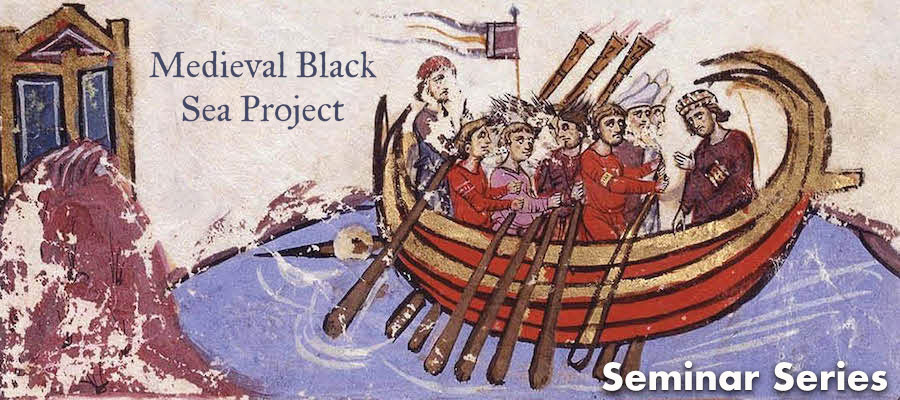Medieval Black Sea Seminar Series, Princeton University and Zoom, March 9, 2023, 4:30 pm
The Strategic Importance of the Black Sea in the Age of Justinian: The View from the South Caucasus
Ian Colvin, University of Cambridge
The Strategic Importance of the Black Sea in the Age of Justinian
Alexander Sarantis, University of Warsaw
This seminar series showcases new research on contact, conflict and exchange in the region of the medieval Black Sea. Our invited speakers will share their expertise on the various aspects of the region’s past, building on analyses of textual, art historical and archaeological material. A wide range of historical sources will be considered, allowing us to explore the agency not only of elite, but also of non-elite individuals and groups.
Papers will trace the region’s historical development, beginning with the impact of the Roman, Hunnic, and Avar Empires in late antiquity. The expansion of these empires and the migrations of the peoples they displaced, as well as the later incursions of the Vikings, will be reconstructed on the basis of recently discovered archaeological evidence, such as early medieval ships preserved in the depths of the Black Sea and Byzantine and Viking coins unearthed in the hinterlands. The eventual formation from this dynamic context of the Kingdom of Rus’– and the foundation of the city of Kiev (Kiyv) – will be examined, as will the interactions with the Byzantine Empire and the Abbasid and Fatimid Caliphates. We aim to evaluate the impact of the expansion of the Latins from the Mediterranean and the Mongols and Turks from Central and East Asia. We also examine the role played in the regional economy by the Ayyubid and Mamluk Sultanates as ‘slave states’ dependent on the importation of Slav and Kipchak captives. Finally, the question of the navigation (and possible appropriation) of the region’s past at the end of the Middle Ages and its influence on later Muscovite narratives of legitimation will be given attention.
Each session will consist of two short papers, followed by a response and a discussion, in the hope of enriching our understanding and creating opportunities for future collaborations between scholars.
Advance registration required for Zoom participation.
